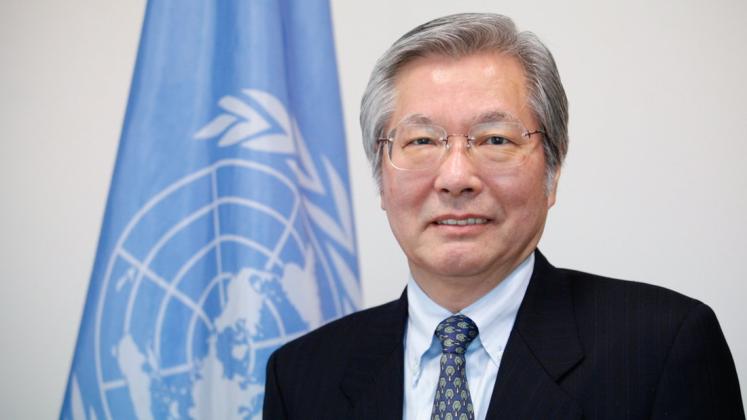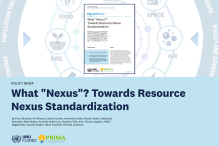On 28 January 2025, UNU will host “The Pact for the Future and International Peace and Security”, a conversation with Tadamichi Yamamoto, Visiting Professor at Ritsumeikan University. This event will start at 18:30 in the 2F Reception Hall at UNU Headquarters in Tokyo.
The United Nations was established after World War II with the aim "to save succeeding generations from the scourge of war". However, the ongoing war in Ukraine and humanitarian crisis in Gaza, and continuing violent conflicts in other parts of the world, particularly in Africa, have led to widespread disappointment and a loss of faith in the UN's ability to fulfill its original mission. At the same time, the UN has expanded its activities, successfully playing a critical role in promoting "social progress and better standards of life in larger freedom". It has worked to address global challenges, including environmental sustainability and climate change, while also advancing human rights and the dignity of individuals. "The Pact for the Future" aptly describes the current challenges the UN faces.
Tadamichi Yamamoto will join UNU Rector Tshilidzi Marwala for a discussion on the role of the United Nations in maintaining international peace and security, and the challenges it faces in the contemporary world. How can the UN address the evolving nature of conflicts today? What are the implications of the "Pact for the Future" for global governance, and peace and security? What roles are expected of both the UN and Japan in addressing these critical issues?
The UNU Conversation Series aims to foster audience participation; you are encouraged to engage with the speakers during the conversation and at the reception that will follow, where all event attendees are invited to enjoy hors d’oeuvres and drinks while exchanging ideas and making new contacts.
Please note that this event will be in English. Advance registration (by 27 January at 15:00) is required. Please click on the REGISTER button above to access the online registration page.
Please be prepared to present identification at check-in.
UNU@50
This event is part of the UNU 50th anniversary celebration. To learn more, visit: https://unu.edu/unuat50
About the Speaker
Tadamichi Yamamoto is currently a Visiting Professor at the College of International Relations, Ritsumeikan University, where he teaches undergraduate and graduate courses on Japan’s foreign policy and peace operations.
He has had a distinguished diplomatic career, holding several key positions in Japan’s Ministry of Foreign Affairs, including as Director-General for Public Diplomacy and Ambassador in charge of assistance to Iraq, nuclear issues related to the Democratic People's Republic of Korea, and assistance to Pakistan and Afghanistan. Yamamoto also served as Ambassador to UNESCO and Hungary and played a pivotal role in the peace process in Cambodia in the 1990s, negotiating with the Khmer Rouge and helping to draft a UN Security Council resolution to decide on the implementation of the democratic elections in Cambodia in 1993. In addition to these roles, he served at the Embassies of the United Kingdom, the Philippines and the United States and worked as Chief Negotiator for the Trade in Services in the Uruguay Round at the Economic Affairs Bureau of the Ministry of Foreign Affairs.
Mr. Yamamoto’s work with the United Nations includes his tenure as the UN Secretary-General’s Special Representative for Afghanistan and Head of the UN Assistance Mission in Afghanistan (UNAMA) from March 2016 until March 2020. He has made significant contributions to peacebuilding efforts in conflict zones, earning him the Allama Sayed Jamaluddin Afghan Medal from President Ashraf Ghani for his work in Afghanistan.
In addition to his diplomatic roles, Yamamoto has been actively engaged in academic and peacebuilding initiatives, serving as a visiting fellow at institutions such as the Sasakawa Peace Foundation and Doshisha University. He has published several works, including "Japan’s Role in Peacemaking in Cambodia: Factors that Contributed to Its Success" (Southeast Asian Studies, 2015). He also co-authored a book titled "Lessons from Afghanistan: International Order is Being Challenged" (2022) with Professor Masanori Naito of Doshisha University. He is also a Board Member of the United Nations Association of Japan.



